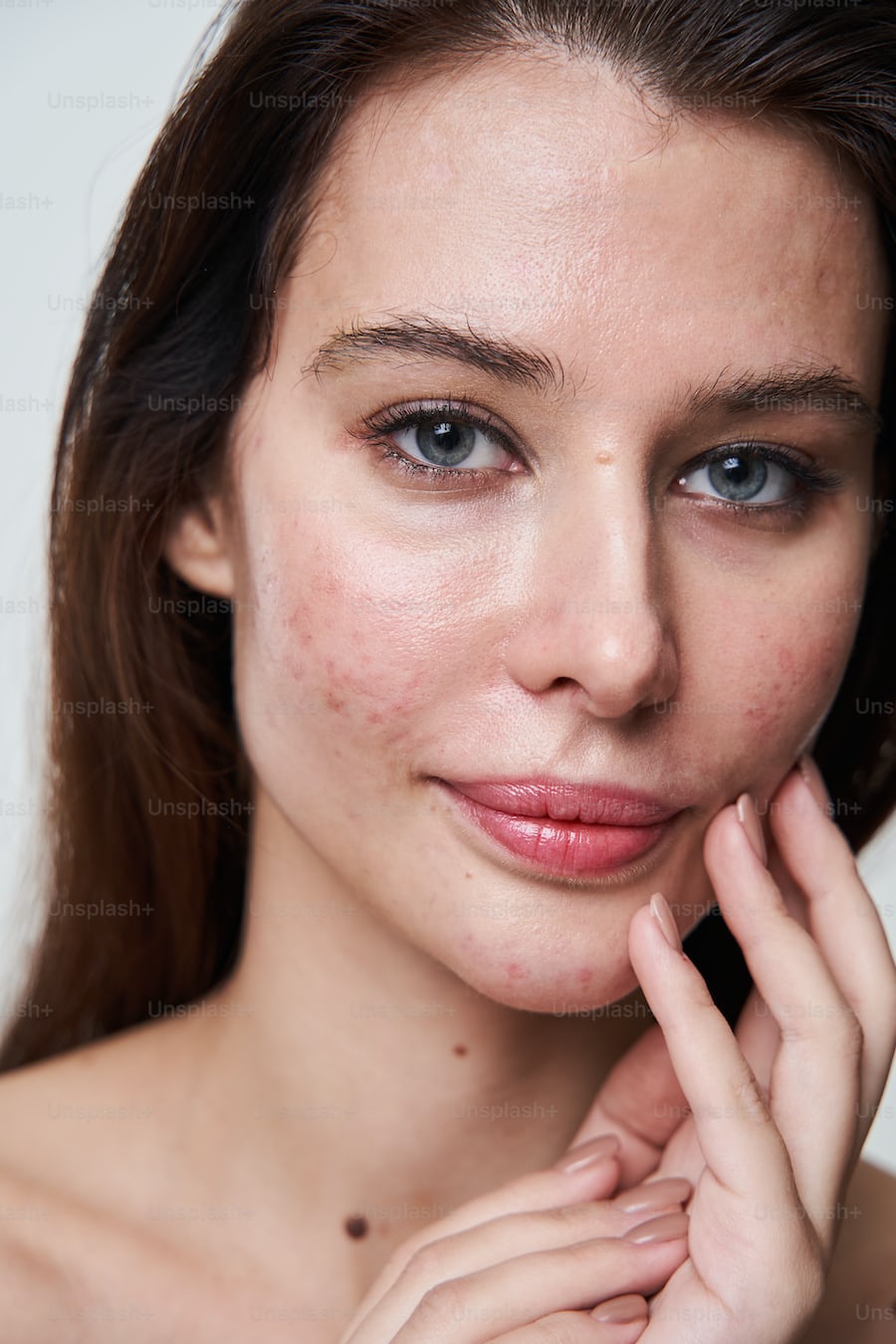More than just skin
Acne is incredibly frustrating. It can be very distressing, uncomfortable, painful, but it’s also an important indicator of what is going on with your health. Adding to the frustration is the multitude of systems involved in the development of acne, which means the perfect lotion or diet that worked for one person isn’t necessarily going to work for another.
When I’m working with someone with acne, I group the potential systems we need to work with into inside causes and outside causes. Inside causes can include hormones (like estrogen and insulin), inflammation, diet, and gut. Outside causes includes things like skin microbiome and pH. Sometimes it’s only one system that needs to be adjusted, and sometimes it’s multiple inside AND outside causes. Usually, it’s the latter. While this seemingly unlimited number of potential contributing factors can feel huge and insurmountable, it also means that if you don’t find something that works for you, there are lots of other things to try. So keep experimenting, and you will find something that works! You could also choose to work with a knowledgable health care practitioner who can help narrow this list down to what matches you.

Where do we start?
When trying to narrow down what needs to be worked on in a patient, I do a thorough history of that person’s health, including hormones, digestion, diet, triggers, and energy and sleep. I also do an examination of the skin and review of that persons skin care routine. Depending on the person, lab testing may be relevant to rule something in or out. It’s not 100% necessary though, because the hormones inside the skin are usually different that in your blood, so just because your blood doesn’t show an imbalance, doesn’t mean it isn’t there. Then together we come up with a plan based on the most important systems to target and what is realistic for the patient to start with.
The causes and systems that need to be evaluated:
Inside causes
– Estrogen/progesterone
– Testosterone
– Insulin*** the #1 thing that needs to be looked into
– Thyroid/Vitamin A
– Gut stuff
– Antioxidant stuff
– DIET!
– Hormone disrupting chemicals
– Inflammation
– Stress (which massively affects insulin and inflammation)
Outside causes
– Skin pH
– Skin microbiome (the bacteria that lives on the skin)
– Fungal
– Too dry
– Too oily
– BOTH
While acne is traditionally thought of as merely a “cosmetic” concern, I think it is a visible symptom of greater underlying health issues and system imbalances. It can also significantly impact mental health. Acne represents broader a broader problem that absolutely should be taken seriously. As a symptom it also provides an amazing opportunity for immediate feedback on treatment progress, which is super useful!

A future beyond acne
Acne is something that I have struggled with since my teenaged years and my causes were numerous! However, I’ve reached a point with my skin that I’m really happy with, and acne is now one of the first signals my body gives me that things are starting to go wonky. I really love guiding others who have struggled with this through the murky waters of acne treatments, and helping ensure that journey is shorter for others than it was for me!
Acne is a difficult symptom that represents a systemic imbalance somewhere in the body, and most of the time there is usually multiple contributing factors. There are lots of things that can be done to help though, and I highly recommend investigating causes beyond traditional topical applications! It’s so much more sustainable to stop break outs from happening than to treat them after the fact. And whatever imbalance is causing the acne is causing other issues in the body as well, they’re just not as visible. Who can say no to better skin AND better health outcomes long term?
References
Turner KM, Keogh JB, Clifton PM. Red meat, dairy, and insulin sensitivity: a randomized crossover intervention study. The American journal of clinical nutrition. 2015 Jun 1;101(6):1173-9.
Nestel PJ, Straznicky N, Mellett NA, Wong G, De Souza DP, Tull DL, Barlow CK, Grima MT, Meikle PJ. Specific plasma lipid classes and phospholipid fatty acids indicative of dairy food consumption associate with insulin sensitivity. The American journal of clinical nutrition. 2014 Jan 1;99(1):46-53.
Li CX, You ZX, Lin YX, Liu HY, Su J. Skin microbiome differences relate to the grade of acne vulgaris. The Journal of dermatology. 2019 Sep;46(9):787-90.
Dréno B, Dagnelie MA, Khammari A, Corvec S. The skin microbiome: a new actor in inflammatory acne. American Journal of Clinical Dermatology. 2020 Sep 10:1-7.
Prakash C, Bhargava P, Tiwari S, Majumdar B, Bhargava RK. Skin surface pH in acne vulgaris: insights from an observational study and review of the literature. The Journal of clinical and aesthetic dermatology. 2017 Jul;10(7):33.
Kaur P, Gupta A, Mahajan S, Kaur A. Thyroid-stimulating hormone levels in patients with acne vulgaris and their relation with age and treatment. National Journal of Physiology, Pharmacy and Pharmacology. 2021;11(9):1045-9.
Akdoğan N, Doğan S, Atakan N, Yalçın B. Association of serum hormone levels with acne vulgaris: Low estradiol level can be a pathogenetic factor in female acne. Our Dermatology Online/Nasza Dermatologia Online. 2018 Jul 1;9(3).
Singh U, Chaudhary A, Singh MM, Sawhney MP, Karunanand B, Anand BK. A Study of Hormonal Profile (Luteinizing Hormone, Estrogen, Follicle Stimulating Hormone and Prolactin) In the Women Suffering From Acne Vulgaris. Annals of International Medical and Dental Research. 2018;4(4):22.
Rao A, Douglas SC, Hall JM. Endocrine Disrupting Chemicals, Hormone Receptors, and Acne Vulgaris: A Connecting Hypothesis. Cells. 2021 Jun;10(6):1439.




